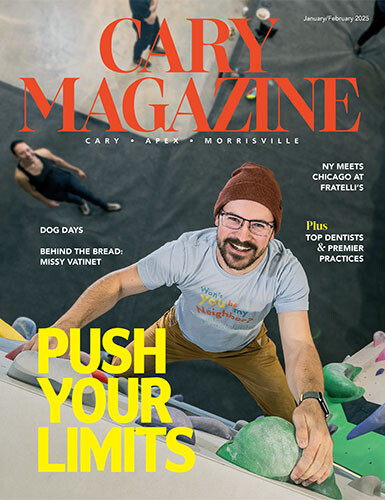They get me every time, big eyes, disproportionate paws and soft coat. It’s hard to turn away when a puppy catches your eye. But adding a dog, young or old, to your family is a big decision that should be considered carefully. Finding out what type of animal best fits your family before you bring one home will ensure that all involved are happy and comfortable with the new living arrangement. There are advantages to both buying from a breeder and adopting from a shelter. Consider these while you make your decision.
Purebred Dogs
Dogs come in all varieties: large or small, energetic or lazy, long or short hair and even hypoallergenic. It is important to determine what type of animal fits your family situation. Doing some research into the different breeds can help narrow down the choices, but speaking with a breeder will give you the best insight into the characteristics of a particular dog. Breeders will be able to predict the size, temperament and looks of their purebred animals, making sure the choice you are making aligns with your family’s desires. Breeders spend a lot of time caring for their animals and may be able to match a specific puppy with your family. If you want the most rambunctious of the group, or the sweetest, the breeder can hand select your new family member.
A common misconception about purebred dogs is that they are riddled with health problems. But responsible, quality breeders undertake vast efforts to verify the health of their animals. “One of the benefits of a purebred dog is that we do health testing. Each parent club has identified through research what health issues this particular breed has. We are working and spending millions of dollars with the Canine Health Foundation to eliminate or reduce these genetic problems,” said Cathy Rubens, a breeder with more than 30 years of experience and owner of SilverHill Rottweilers in Apex.
When buying from a breeder, you should be able to meet one, or sometimes both, of the puppy’s parents. Seeing the parent dogs can give you an idea of the physical characteristics and health of the animal under consideration.
Many responsible breeders have a take-back policy for their animals. If your family undergoes a hardship and is unable to keep the dog, the breeder will accept it back at any time and find it a new home. “My puppies come back to me at any time for any reason at any age, and I will find them another home. The parent clubs also do purebred rescues. So if someone wanted to find a purebred they can go through the rescue and possibly adopt a dog that way. We try to keep any our dogs from shelters by doing this,” said Rubens.
It is important to make sure the breeder you are considering is responsible and reliable. Responsible breeders operate according to a code of ethics and will be affiliated with a kennel club such as the American Kennel Club and their breed-specific parent club, like the Golden Retriever Club of America. Responsible breeders will also make themselves available to answer questions about training and help you through the process of raising your new puppy. Many breeders provide a packet with information about training, health care and adjusting to new responsibilities. Look for the AKC designation “Breeder of Merit,” a label that identifies breeders who meet criteria for length of experience, health screening and event titles earned.
To speak with Cathy Rubens or learn more about SilverHill Rottweilers, call (919) 362-4738 or visit www.silverhillrottweilers.com.
Pet Adoption
If you aren’t interested in the specific characteristics of a purebred dog, then pet adoption might be right for you. You’ll be saving a life and giving a home to a needy. Dogs in shelters are not damaged or defective, they have just been overlooked or surrendered and are in need of new homes. Shelter dogs are often mixed breeds, which can assuage some of the worry about breed-specific health problems.
Although predicting physical characteristics and temperament of shelter puppies is more challenging than purebred dogs, shelter volunteers perform behavioral assessments of the animals and get to know their personalities in order to educate potential adopters.
“We have amazing volunteers that work with the animals every week. We actually get to know the animals pretty well, especially if they’ve been here a while. … We can educate the adopters on what the pet is like and we can also go over the medical history of what we know of the pet,” said Darci VanderSlik, community Outreach Coordinator with the SPCA of Wake County. The SPCA of Wake County staffs an animal behavior specialist who is available to answer questions and support families for the life of the pet.
Most shelter pets will be spayed or neutered, micro chipped and up to date on vaccinations before they are released for adoption. The SPCA also offers low-cost surgery services to the public to help keep the pet population under control.
Shelters offer adult dogs that may already be housebroken or crate-trained. For families looking to bypass the high-maintenance puppy stages, adopting an adult dog might create an easier transition.
Adoption fees are usually substantially lower than the cost of purchasing a purebred dog. And shelters often run specials to encourage adoptions and create space for new animals. The SPCA recently finished an Independence Day Adoption Event that reduced the fees on all its animals to $17.76, and is currently running an ongoing program that waives all adoption fees for adult cats.
“We’re doing whatever we can to get people in the doors and to encourage them to adopt. Because once they take an animal out of a kennel here, that empties a kennel so we can go and grab an animal from a different community shelter and bring it in to fill that empty kennel for another adoption to take place,” said VanderSlik.
For more information about pet adoption, contact the SPCA at (919) 772-2326 or visit www.spcawake.org.




